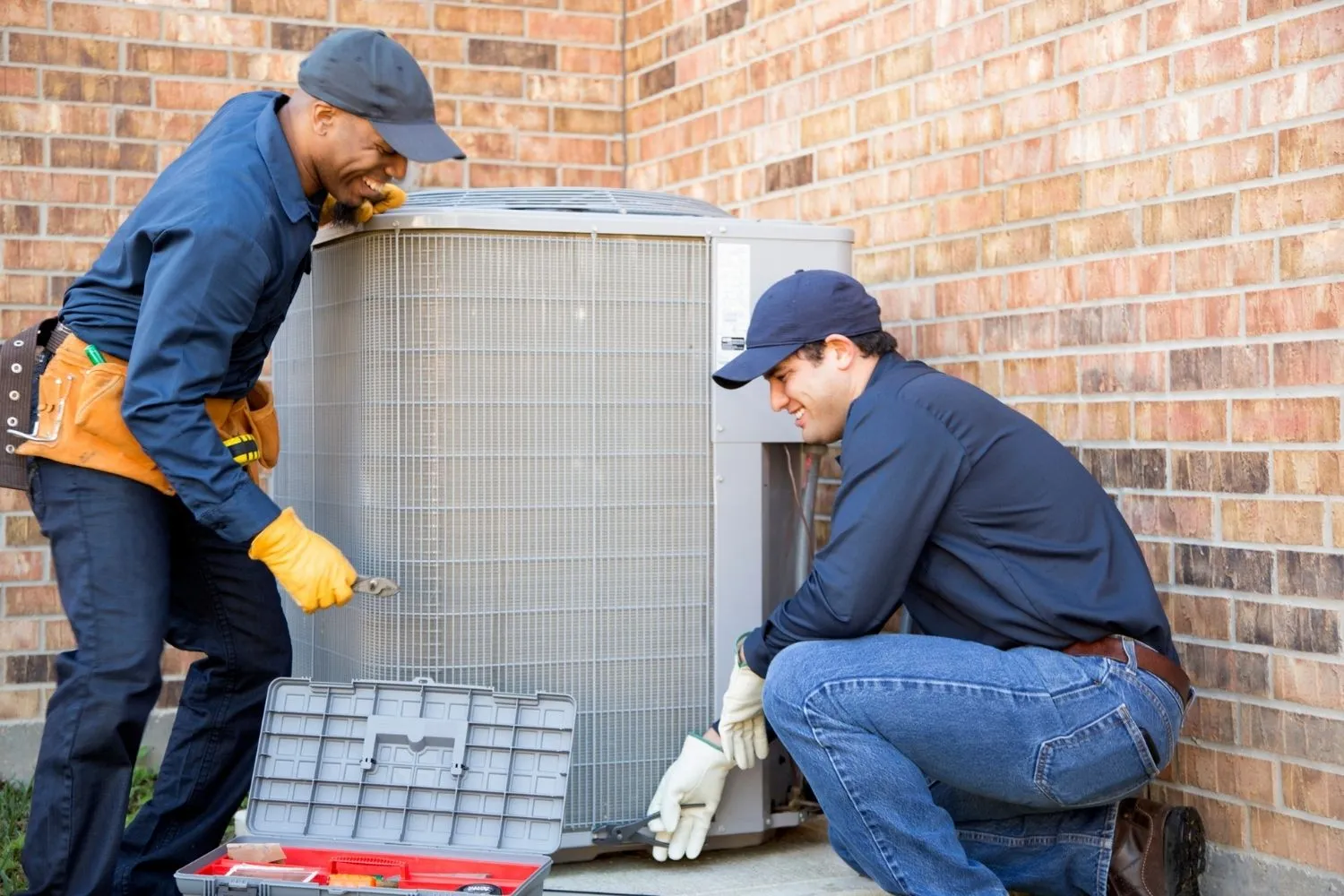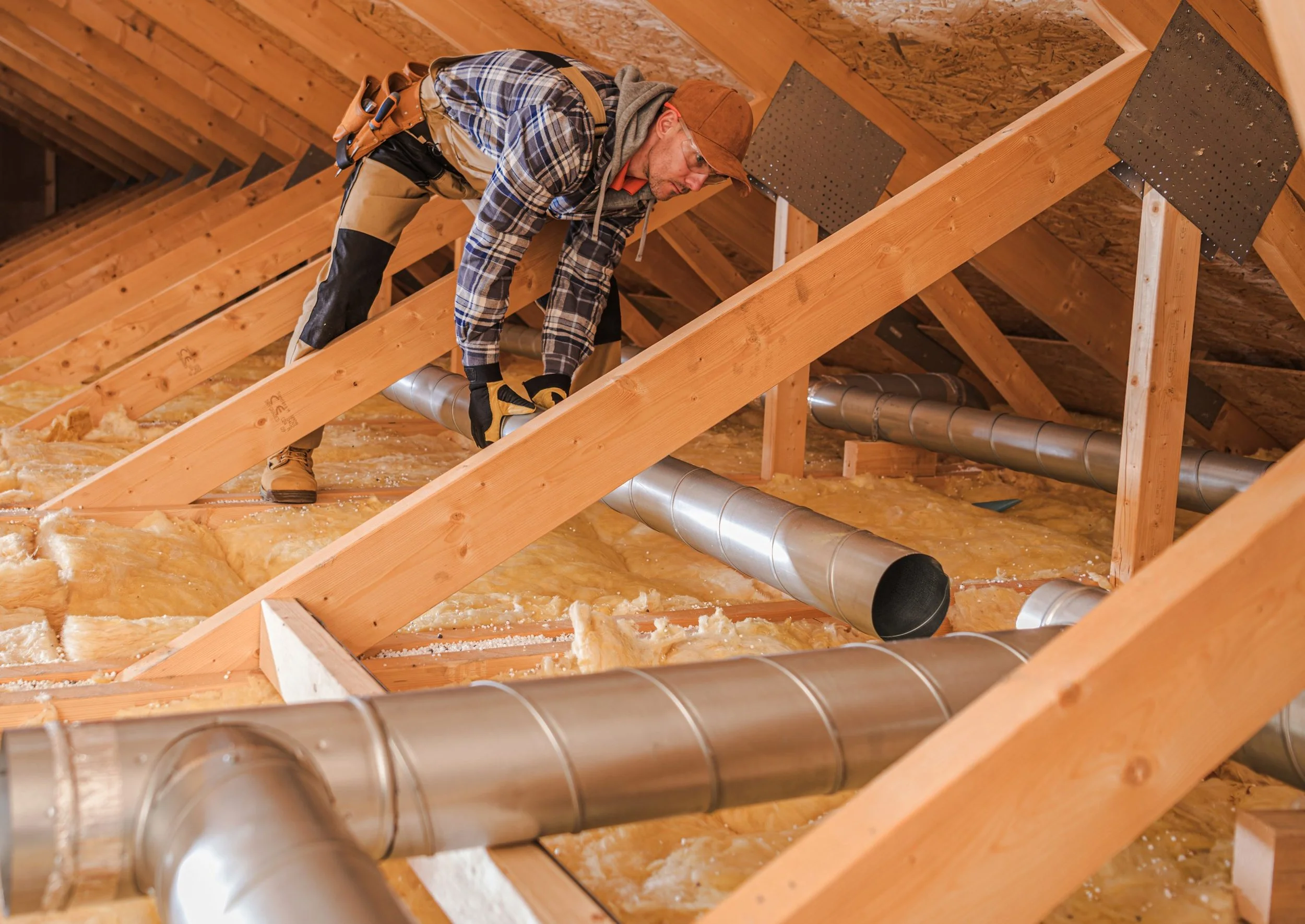
HVAC
Waiting for your air conditioner to fail before replacing it is not the best idea. A failing system will negatively impact comfort, not to mention indoor air quality. The benefits of AC installation include:
Lower Maintenance Costs: The older an air conditioning system is, the more frequently it needs repairs and maintenance, which add up in cost. As original parts become harder to find, costs go up as do the chances of mismatching components, potentially leading to additional repairs.
Energy Efficiency: Air conditioners over 15 years old use more electricity than modern units. A lack of efficiency means higher energy bills; a Seasonal Energy Efficiency Ratio (SEER) determines how efficient a unit is (the higher the SEER rating, the more efficient it is).
Improved Well-Being: New air conditioners can more reliably remove dust, pollutants, allergens, and viruses from the air. Improved comfort means you can enjoy your home no matter how hot or cold it is outside—and sleep better too.
DUCTWORK
Maintaining the ducts in an HVAC system for a residential home is crucial for several reasons:
Energy Efficiency: Well-maintained ducts ensure that the HVAC system operates efficiently. Leaks or blockages in the ductwork can cause the system to work harder, leading to increased energy consumption and higher utility bills.
Indoor Air Quality: Over time, dust, allergens, and other pollutants can accumulate in the ducts. If not regularly cleaned, these contaminants can be circulated throughout the home, leading to poor indoor air quality, which can exacerbate allergies and respiratory issues.
System Longevity: Proper duct maintenance helps prevent wear and tear on the HVAC system. By ensuring that air flows smoothly and without obstruction, the system doesn't have to overwork, which can extend its lifespan and reduce the need for costly repairs or replacements.
Comfort: Leaky or blocked ducts can lead to uneven heating or cooling in different areas of the home. Maintaining the ducts ensures that air is distributed evenly, providing consistent comfort throughout the house.
Cost Savings: Regular maintenance of ducts can prevent costly repairs down the line. Identifying and fixing minor issues early can save homeowners from major expenses in the future.
FAQs
What does HVAC stand for?
HVAC stands for Heating, Ventilation, and Air Conditioning. It refers to the different systems used for moving air between indoor and outdoor areas, as well as heating and cooling residential and commercial buildings.
How do I know if my HVAC system needs maintenance?
Common signs include uneven heating or cooling, higher-than-normal energy bills, strange noises, or the system constantly turning on and off. Regular maintenance is recommended at least once a year.
How often should I replace my HVAC filter?
HVAC filters should typically be replaced every 1 to 3 months, depending on the type of filter, the number of people and pets in the household, and environmental factors like air quality.
What size HVAC system do I need for my home?
The size of the HVAC system depends on the square footage of your home, climate, insulation, and the number of windows. A professional HVAC contractor can conduct a load calculation to determine the right size.
How can I improve the efficiency of my HVAC system?
Improve efficiency by regularly cleaning or replacing filters, ensuring that vents and ducts are unobstructed, performing regular maintenance, and considering the installation of a programmable thermostat.
How long does an HVAC system typically last?
On average, an HVAC system can last 15 to 20 years, depending on usage, maintenance, and the quality of the installation. Regular maintenance can extend the life of the system.



